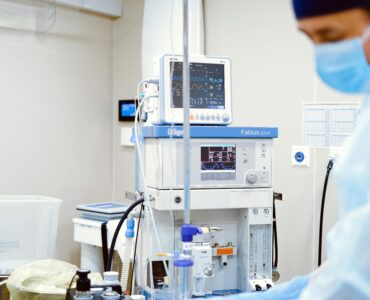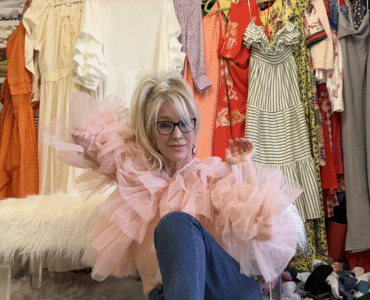There are numerous genetic mutations associated with breast cancer. The exact number can vary depending on the criteria used to define these mutations. That said, the exact number of known mutations is not fixed. New mutations are continually being discovered through ongoing research. However, it is safe to say that there are hundreds of identified mutations across various genes associated with breast cancer.
High-risk genetic mutations linked to an increased risk of breast cancer include BRCA1 and BRCA2 as well as TP53, PTEN, CDH1, STK11, and PALB2. Each of these genes can have multiple mutations associated with breast cancer risk. In addition to these high risk genes, there are moderate- and low-risk genes such as CHEK2, ATM, and NBN that have various mutations that can contribute to breast cancer risk. Finally, there are common genetic variants, identified through genome-wide association studies (GWAS), that are associated with a smaller increase in breast cancer risk. These are often single nucleotide polymorphisms (SNPs).
I should note, I was not genetically tested for my breast cancer. My cancer was a common form and as I was over the age of 50 when diagnosed, my doctors did not feel it was warranted. Only 5-10% of breast cancer occurrence is genetically related.
That said, there is cancer on my father’s side of the family. He and many of his siblings died of the disease, so I will always wonder if there was a genetic connection.
The topic of genetic mutation certainly comes up in the discussions I have with women and has particularly heavy consequences for young women. Let’s dig into it a bit more deeply.
What is the BRCA Mutation?
BRCA1 and BRCA2 mutations account for a significant percentage of hereditary breast cancers.
BRCA1 and BRCA2 are genes that everyone has. These genes produce proteins responsible for repairing damaged DNA, thus playing a critical role in maintaining the genetic stability of cells. However, when there are mutations in these genes, their ability to repair DNA is compromised, leading to an increased risk of cancer. The most well-known cancers associated with BRCA mutations are breast and ovarian cancers, but these mutations can also elevate the risk of other cancers, including prostate and pancreatic cancers.
Who is Affected by the BRCA Mutation?
While BRCA mutations can occur in any population, they are particularly prevalent in individuals of Ashkenazi Jewish heritage. Approximately 1 in 40 individuals of Ashkenazi Jewish descent carries a BRCA mutation, compared to about 1 in 400 in the general population. This higher prevalence is due to a genetic bottleneck effect, where a small population’s genetic traits become amplified over generations. Other populations, such as Norwegian, Dutch, and Icelandic peoples, also have founder mutations. A recent study out of the UK also now suggests one in 100 people with grandparents from Orkney has a specific mutation of the BRCA1 gene. It found that most of them could trace their family ancestry back to the island of Westray. This is believed to be the first time a geographic ancestral link of this kind has been made within the UK.
The impact of BRCA mutations is significant for those who inherit them. Women with a BRCA1 mutation have a 55-65% chance of developing breast cancer by age 70, while those with a BRCA2 mutation have about a 45% chance. The risk of ovarian cancer is also elevated, with BRCA1 mutation carriers facing a 39% chance and BRCA2 carriers a 17% chance by age 70.
How to Get Tested for BRCA Mutations
Testing for BRCA mutations involves a simple blood or saliva test that looks for specific mutations in the BRCA1 and BRCA2 genes. However, the decision to undergo genetic testing should be made with careful consideration and ideally, with the guidance of a genetic counselor. Here are the steps involved in the process:
- Genetic Counseling: Before testing, a genetic counsellor will review your family and medical history to assess your risk and discuss the implications of the test results.
- Testing: If you decide to proceed, a sample of your blood or saliva is collected and sent to a lab for analysis.
- Results and Interpretation: The results typically take a few weeks. The genetic counsellor will help interpret the results and discuss the next steps.
- Decision Making: Based on the results, you may need to make decisions about preventive measures, which can include increased surveillance, medication, or preventive surgery.
The Impact of BRCA Mutations on Women
For women who test positive for a BRCA mutation, the knowledge can be both empowering and daunting. It provides an opportunity to take proactive steps to reduce cancer risk, but it also brings significant emotional and psychological challenges. I had a recent conversation with a woman who discovered she had the BRCA mutation at a young age and opted to have both breasts removed before the age of 30 as a preventative measure. She explained to me that she was continually haunted by the thought that breast cancer was not a maybe but a when. She simply could not live with the psychological weight of that knowledge haunting her. It created terrible anxiety and fear.
Prophylactic Mastectomy: A Brave Choice
One of the most drastic yet effective preventive measures is a prophylactic (preventive) mastectomy. This surgery involves removing one or both breasts before cancer develops and can reduce the risk of breast cancer by up to 95% for women with BRCA mutations. Choosing to undergo this surgery is a deeply personal decision that requires immense bravery and resilience. It is a personal opinion, but the decision to undergo a prophylactic mastectomy, while preventive, is in my estimation a profound act of courage. I was diagnosed with cancer. For women who go the prophylactic route, often at a young age, they must come to terms with the loss of their breasts, which are still closely tied to femininity and identity. They also must face the physical and emotional challenges of surgery, recovery and reconstruction (breast mound or if remaining flat, chest wall). Women who make this choice do so out of a desire to take control of their futures and reduce the uncertainty that comes with a BRCA mutation.
Living with the Knowledge
Other women diagnosed with a BRCA or other genetic mutation will opt simply to monitor with the support of their doctors. They go into high risk monitoring programs and are assessed annually wiht mammograms, MRI scans, and clinical breast exams. This vigilance helps detect any cancer early when it is most treatable.
Inspiring Stories
I am continually in awe of women who face this journey and rather than remaining private share their stories with the world. For instance, actress Angelina Jolie brought significant attention to the BRCA mutation when she publicly shared her decision to undergo a prophylactic double mastectomy. Her openness helped many women feel less isolated and more empowered to take control of their health. More recently, we heard from actress Olivia Munn, who after learning she had a high-risk profile and was diagnosed with early-stage cancer opted for a double mastectomy and a hysterectomy. Author Deb Harkness, diagnosed and treated in and around the same timeframe as myself with BRCA-related ovarian cancer also had a preventative double mastectomy.
A diagnosis with the BRCA mutation presents significant challenges. It also offers an opportunity for proactive health management. Understanding one’s risk, getting tested, and making informed decisions about preventive measures are key steps in managing this genetic predisposition. The bravery of women facing these decisions head-on is truly awe-inspiring. They embody resilience and strength. By taking charge of their health and sharing their stories openly, they are inspiring others to have the courage to do the same.




